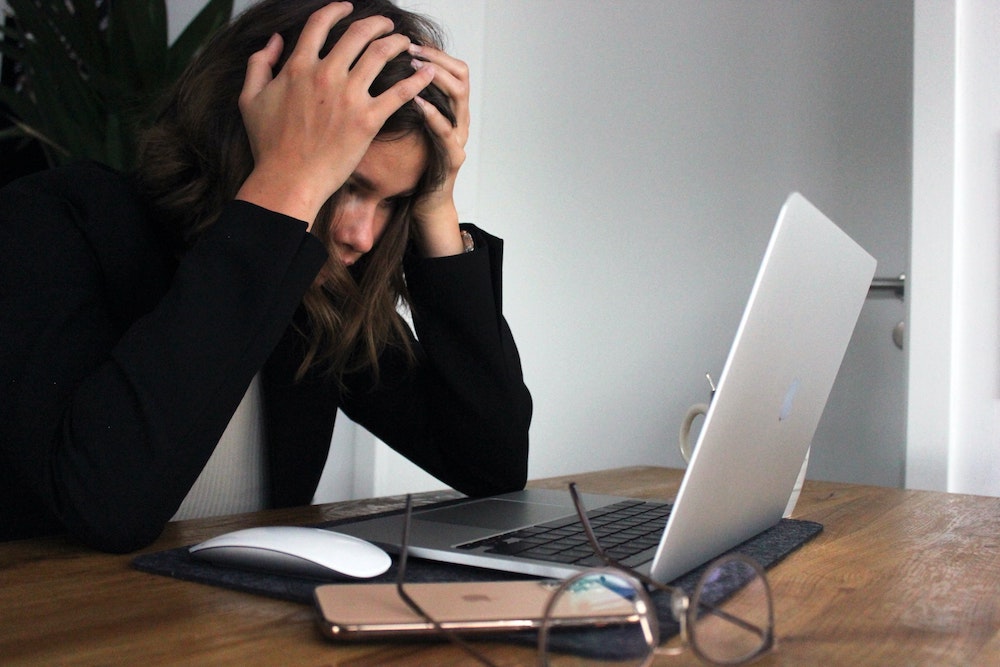
Article by Jenny Devonshire, Founder of workplace wellness performance portal, Pause2Perform
In fact, not since the Industrial Revolution has our daily status quo been so thoroughly dismantled. In the pre-pandemic world, millions of us spent a third of our lives in a workplace. But the first lockdown announcement in March 2020 changed everything; the number of us working from home doubled to 46.6% practically overnight.
Fast forward to April 2022 and while things are definitely on the up; this change in the way we live and work brings with it a new set of anxieties, in both our personal and professional lives:
Stress Awareness Week, Jenny Devonshire says, is the perfect time to look at four of the most common causes of workplace stress, and how to better manage them.
Procrastination is a very common problem and whilst on the surface it may seem a purely negative behaviour, it is in fact (as with most things), our brain is working to protect us:
As it happens, one of the most common personality types to procrastinate is the perfectionist. Perfectionists avoid tasks because they don’t want to produce anything less than perfect – and as such get overwhelmed by expectations, pay too much attention to detail and often can’t finish tasks because it is never good enough for their exacting standards.
Perfectionists should remind themselves that perfection does not exist. Set yourself clear deadlines so you can’t spend too much time on a task and remind yourself that ‘done’ is better than perfect. You should also try to celebrate completion and reward yourself for getting tasks done rather than trying to make everything perfect.
Another type of procrastinator is the ‘worrier,’ seeking to meet the basic psychological need of safety and security by avoiding tasks. They are driven by fear; of failure, judgement or possibly even fear of success.
To help combat this form of procrastination, take time to explore your fears, write them down and ask yourself ‘what’s the worst that could happen?’ and ‘how likely is this in reality?’. You may also wish to engage in stress reducing activities such as breath work, meditation or yoga.
We cover all the different types of perfectionist as well as useful tools for tackling procrastination and boosting productivity in our procrastination workshop which is available either in person or via Zoom.
It is very easy to take work home with you, a survey by Good Technology found 80% of workers were doing so. Research suggests people are working at least an extra 9 hours per week.
Unpaid overtime can have long term health consequences both physically and mentally. Many people report difficulties in switching off as well as sleep disturbances. People who work more than 11 hours per day are more likely to suffer from depression. Taking work home with you can interfere with your family responsibilities and taking work stress home can negatively impact your household. Not having enough time to rest and recover will reduce your productivity levels.
Having a morning routine can help set you up for the day, taking some time for you first thing in the morning can help reduce stress. You could try three minutes of mindfulness, simply sit somewhere quiet and focus on your breathing for three minutes, or if you have more time, a morning stretching routine is fantastic for the body as well as the mind.
There are lots of follow-along mobility exercises on the Pause2Perform portal as well as breathing exercises and guided meditations which are designed to reduce stress. If you are working from home, getting dressed in work attire and leaving the house even to just walk around the block to come home and ‘arrive’ at work can help make a divide mentally between work and home. Repeat this as the end of the day and do not check emails or perform any work activities once you have re-entered the house.
Stress can have a huge impact upon our sleep and in turn a lack of sleep can negatively impact on both physical health. The occasional night of poor sleep is unlikely to have much impact, apart from struggling through the following day and possibly experiences cravings for carbohydrate dense foods and a reliance on caffeine.
Long-term sleep deprivation can result in chronic health conditions including; obesity, heart disease, diabetes, stroke, depression, kidney disease and arthritis.
Stress results in us being in a state of alertness as we get stuck in the fight-or-flight response. Adrenaline and cortisol levels are elevated which can make it difficult to switch off and sleep. 43% of people report losing sleep to stress at least once in the previous month.
When we are overtired life feels much harder, small things like our train being delayed can feel like a disaster, our ability to cope with minor stressors is compromised and we can feel a lot more emotional. You will likely struggle to get out of bed in the morning and keep hitting your snooze alarm. This is turn can lead to running late in the morning, making you even more stressed.
To help you switch off at night you could try breathing exercises, these can help to take you out of your sympathetic nervous system (fight-or-flight) and into your parasympathetic system which is your relaxed state. If you are suffering from feelings of panic or anxiety, tapping is a fantastic tool to alleviate these symptoms, for a guide on how to perform this you can follow the link:
Working when you are unwell is called ‘sickness presenteeism’ and is becoming increasingly common. When working from home people feel they no longer have the excuse of not wanting to bring illness into the office as a reason for taking sick days. They also feel that as they are at home, there is no harm in continuing to work while they are ill. Some people feel that unless it is Covid, taking time off for illness would be looked down upon by their colleagues.
However, there are negative consequences in doing so. In the short-term you will not be as productive and people working when unwell are more likely to make mistakes. It can also prolong the length of your illness as you do not allow your body the rest to fully recover. In the long-term, people that worked when unwell were more likely to get ill 18 months later. There has also been a link between working when sick and the risk of developing depression 2 years later.
If you are unwell, realise that it is better for you and your company to take time off to get better. Let your employer know as soon as possible and overestimate how long you will be off. You can update them of any urgent tasks so they can be delegated elsewhere. Once this is done, switch off completely and let go of guilt. Focus on getting better, it is better for everyone long-term.
 About the author
About the authorJenny is a qualified Level 3 Personal Trainer, Yoga and Pilates teacher, who has been helping people, organisations and teams succeed for over 8 years, and I thought she might be suitable for your readers for interview/guest comment/guest article.
